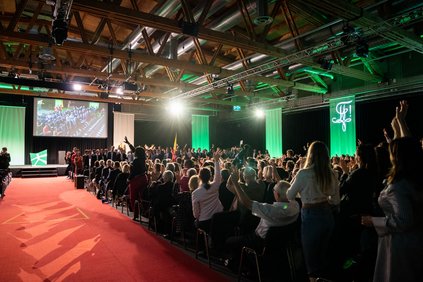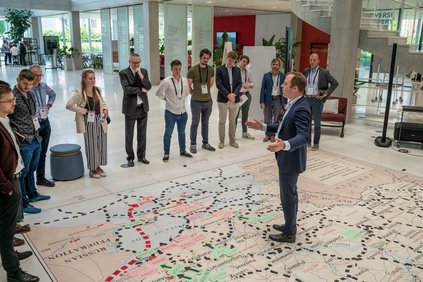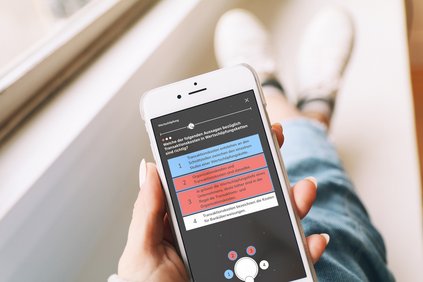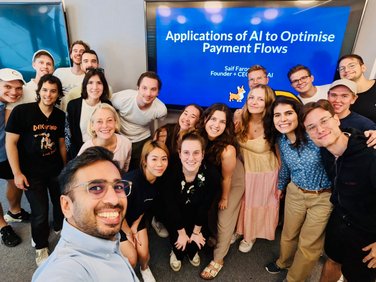Campus - 12.06.2023 - 11:40
HSG students train strategical thinking in a simulated geopolitical crisis
A geopolitical crisis focused on the Ukraine war was the starting point for a two-day simulation at the SQUARE at the HSG under the title “St.Gallen Strategy Days”. Students were able to influence the course of the crisis as representatives of countries, companies or international organisations. This kind of learning through gaming is also used by governments, companies or armies at the highest level of leadership.
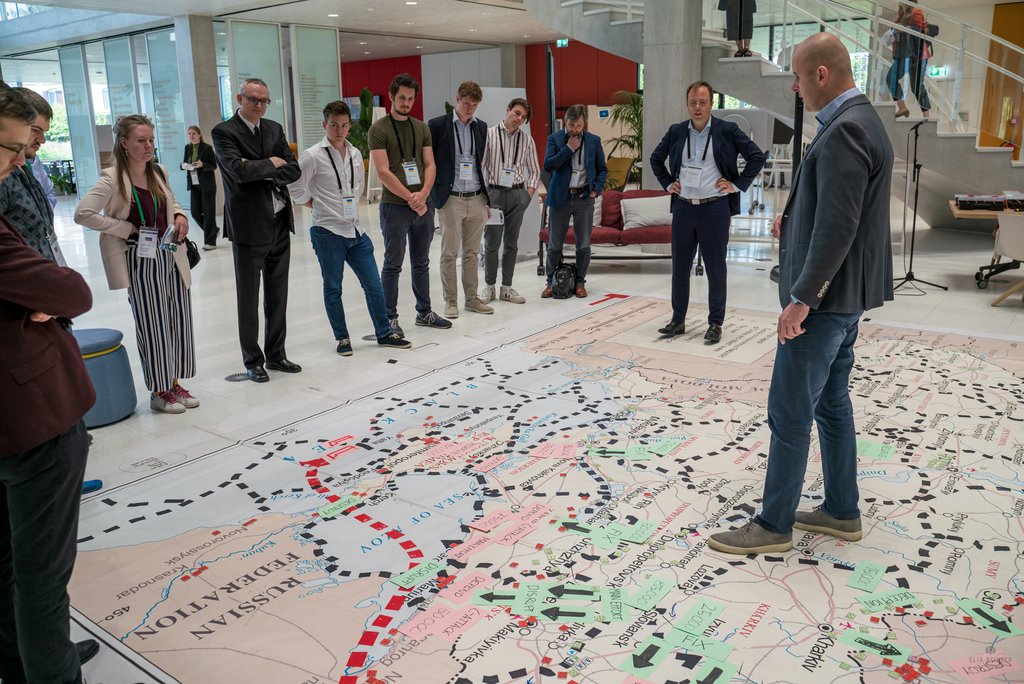
The world in July 2023: Ukraine is trying to retake the east of the country with an offensive. There is also trouble in the rest of Europe, whose long-term energy supply remains uncertain: The opposition in Turkey talks of electoral fraud and Extinction Rebellion is sweeping the cities with protests. Norway, meanwhile, is staking its claim to newly discovered oil reserves in the Arctic at the same time as Russia. In Asia, the conflict over Taiwan is coming to a head because Xi Jinping has publicly repeated that the island state is part of China.
Using this geopolitical crisis scenario as a starting point, the “St.Gallen Strategy Days” kicked off on 1 June at the SQUARE at the HSG. Over the course of two days, at the SQUARE, 100 participants played out possible developments of the scenario - not in theory, but in a simulation as representatives of countries, international organisations and companies. The teams represented, among others, Russia, Ukraine, the USA, China, Germany, France and Switzerland. Corporations such as Google, Microsoft, Huawei and BP were also involved in the game, as well as international organisations such as the EU, NATO and the UN.
All teams had a series of tasks to undertake, which included making decisions in a simulation, negotiating with each other and signing agreements, organising multinational meetings and obtaining intelligence information. “In the process, participants learn to analyse complex and uncertain situations and to make strategic decisions under pressure”, says Philippe Narval, SQUARE Director and co-organiser of the St.Gallen Strategy Days. “They also have the opportunity to practise leadership, teamwork and negotiation techniques”.
A game as an innovative teaching method
Simulations like these are called “serious gaming”. “Serious gaming addresses all phases of the learning process. The participants also acquire theoretical knowledge. At the same time, they gain practical experience, receive immediate feedback on it and are thus able to reflect on their actions and what they have learned”, says Diederik Stolk.
The Dutchman is an international expert in political and military simulations, which he conducts with companies, high-ranking politicians and the military, such as NATO and the Dutch General Staff. He also teaches “serious gaming” as a didactic method at universities. “The students and future leaders can try things out in this simulation without the fear of making mistakes. And they practise skills that will be useful to them in their professional lives”, says Mr Stolk.
Mr Stolk and his team were also in charge of the St.Gallen Strategy Days. In addition to designing the game, they formed a control team that monitored whether players' actions and decisions were realistic and complied with the rules.
During the two-day simulation, a media team of real journalists and students also worked at the SQUARE, documenting the events and publishing reports on them. The countries, companies and organisations communicated digitally with each other via the Slack platform, while at the same time lively, often informal discussions could be heard in the corridors of the SQUARE.
An interactive map of Europe was available online and in the entrance area of the SQUARE, showing the current course of the war as well as other events. And the latest news and intelligence reports were displayed on various screens. A special feature of the game was that time was accelerated: one hour of gaming time corresponded to one month of real time.
Guidance from diplomats, officers and negotiators
Before and during the game, various experts gave tips on strategic thinking, negotiation tactics, diplomacy and international politics. For example, Markus Reisner, military historian and colonel of the Austrian Armed Forces, spoke to the students in workshops. Mr Reisner is internationally recognised as a strategy expert. His analyses of the Ukraine war on YouTube attract hundreds of thousands of viewers and also address aspects such as cyber and information warfare.
The Austrian army uses “serious gaming” in the training of senior officers, as Mr Reisner said in a conversation on the fringe of the St.Gallen Strategy Days. “The method conveys to the players how incredibly complex crisis situations are. At the same time, the players are forced to act under time pressure within the scenario and are thus directly affected”. “Serious gaming” therefore has a strong learning effect.
Course on “serious gaming” for HSG lecturers
In addition to Reisner, Philippe Welti, former Swiss ambassador to India and Iran, the negotiation expert Cathrin Clüver Ashbrook from the Harvard Kennedy School and the leadership and crisis communication expert Emilio Galli-Zugaro were among those present at the SQUARE.
Following the St.Gallen Strategy Days, “serious gaming” is to become more widespread as a teaching method at the HSG: At the end of June, a one-day workshop for lecturers will take place at the SQUARE, led by the expert Mr Stolk, among others. In addition, a handbook for interested parties at the HSG is to be created based on the experiences gained over the two days of gaming.
More articles from the same category
This could also be of interest to you
Discover our special topics


